Cushion, responsiveness, and sustainability — the Ghost 15 has it all
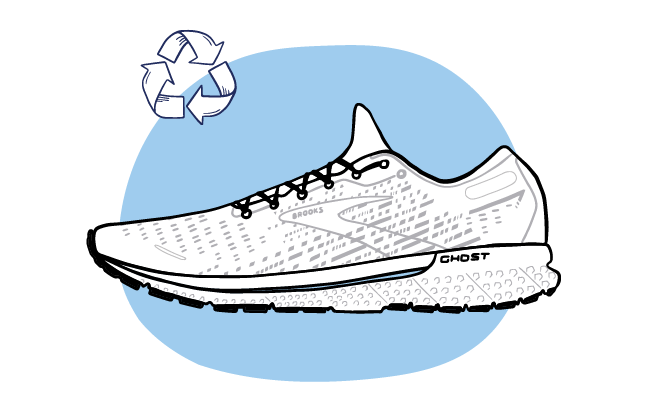
What does CO₂e mean?
What does CO₂e mean?
What does CO₂e mean?
This fan-favourite carbon-neutral running shoe is helping Brooks down a science-backed path to net zero carbon emissions by 2040
Our work towards a healthier planet
We love that sweet, sweet oxygen we breathe on the run, so we owe it to the planet to minimize the emissions we produce in manufacturing our shoes and gear. At Brooks, we believe climate change demands urgent and universal action. We are committed to achieving net zero carbon emissions by 2040 — ten years ahead of the goal set by the Paris Agreement.
To achieve this ambitious goal, we first prioritize reducing our carbon emissions by converting materials in our product to recycled alternatives, using low impact dyeing processes, and sourcing materials and our product from factories that use renewable energy. As we move along this path, we recognize that we will continue to emit carbon emissions and we hold ourselves responsible to address this impact. That’s why we compensate for the carbon emissions we have not yet reduced by purchasing carbon credits to make an immediate impact to help address climate change.
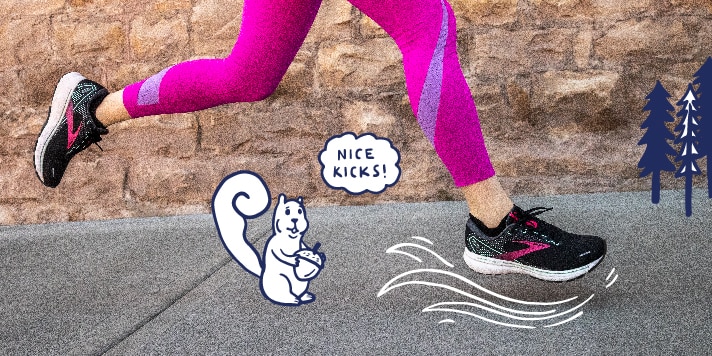
What does CO₂e mean?
Impact of the Ghost 15
At Brooks, we started with our highest-volume style — the Ghost— as our first carbon-neutral product. This commitment began in 2021 with the launch of the Ghost 14 Our commitment is ongoing, so when each new version of the Ghost hits the stores, we’ll continue to make the shoe carbon neutral through efforts to reduce our emissions and carbon offsetting.
The carbon emissions of the Ghost 15 are 9.27 kg CO₂eq, a 6% reduction compared to the Ghost 14 To understand this impact, we performed a life cycle impact assessment utilizing the Product Environmental Footprint (PEF) methodology, the current standard of the European Commission. The carbon impact includes the full life cycle of the Ghost 15 shoe: production of materials, assembly of product, packaging, distribution, and end-of-life.
Loved by runners for its smooth ride, the Ghost is all about balance, but what makes the Ghost special is its environmental footprint. Our efforts to make the Ghost 15 carbon neutral started with reducing its carbon emissions. 24% of the total shoe weight is from recycled materials, with all the textiles in the upper containing recycled content. This includes a 90% recycled content vamp mesh, 86% recycled content tongue mesh, 87% recycled content tongue and collar lining, and 100% recycled content materials used for the lace, sockliner top cloth, and all the textile reinforcements.
We then compensate for the remaining carbon emissions we have not yet been able to reduce with carbon credits to make an immediate impact to help address climate change.
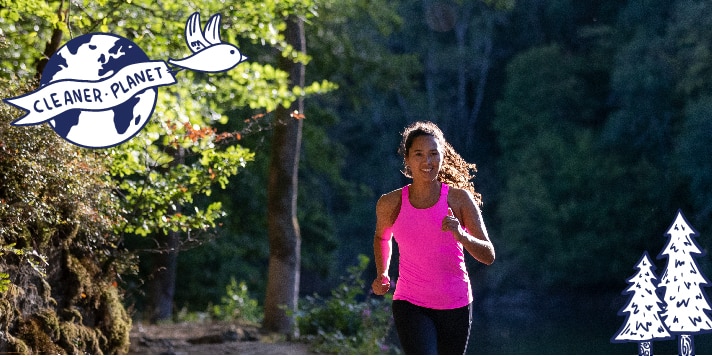
So what are carbon credits?
Carbon credits come from projects that verifiably avoid, remove, or reduce carbon emissions from the atmosphere through actions like displacing fossil fuel energy with the development of renewables, restoring degraded land with new forest, and reducing fuel usage through clean cooking solutions.
Here’s how it works:
Think of a traditional scale. First, add a pair of Ghosts to one side. The scale becomes unbalanced, tipping down where a pair of Ghosts has been placed. This represents the carbon emissions from a pair of Ghost 15: made up of the extraction and processing of raw materials, product manufacturing and distribution, use, and end of-life disposal.
Then, as we implement measures that reduce the carbon footprint of the Ghost 15, the scales start to re-balance. For example, through converting traditional materials to recycled alternatives that have lower carbon emissions.
Finally, we find complete balance on the scale by compensating for the remaining emissions through carbon offsetting.
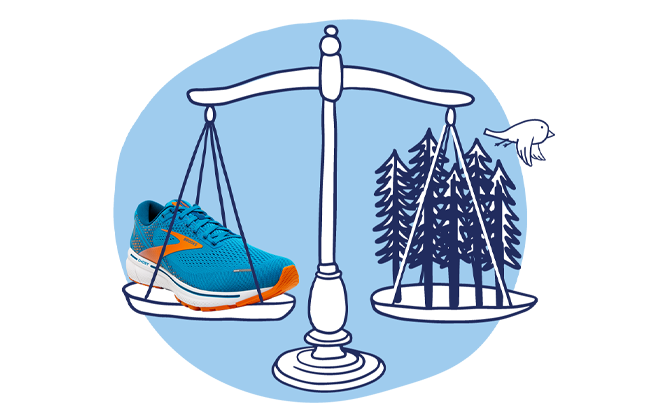
How we choose carbon offset projects
Not all offset projects are equal. Our approach to ensuring quality includes purchasing credits from projects that are verified, to leading international standards within the voluntary carbon offset market (such as Verra, Gold Standard, and American Carbon Registry), which ensure the carbon credits are additional, permanent, quantifiable, and independently verified.
Additionally, we carefully selected our carbon offsetting partner, Climate Impact Partners, because they go the extra mile by undertaking additional due diligence beyond these standards to assess the projects against a broader range of criteria to ensure they are only working with the highest quality projects.
Finally, we prioritize projects that align with climate science, and deliver clear social and environmental impacts beyond reducing carbon emissions, such as improving air quality and health and well-being for communities.
We currently purchase carbon credits from projects that avoid carbon emissions from entering the atmosphere. We believe this has an immediate impact in addressing climate change, as they prevent emissions from entering the atmosphere in the first place. Our long-term approach to achieve net zero carbon emissions is to transition to purchasing carbon credits from projects that permanently remove and store carbon emissions from the atmosphere.
Carbon credits for the Ghost 15
In partnership with Climate Impact Partners, we selected three projects that meet our strict criteria and purchased enough carbon credits from these projects to compensate for the carbon emissions for each pair of Ghost 15 we produce.
Renewable Energy Portfolio, Global
Overview: Support of this renewable energy portfolio facilitates the global transition to a low carbon energy future. Energy generation is one of the biggest emitters of greenhouse gases, and renewable energy investment is a fast and effective solution to reduce these emissions.
Standard: Verified under the UN Clean Development Mechanism (CDM)
Cuel Wind Power, El Morro, Chile
Overview: Wind power project located south of Santiago, Chile, that facilitates the generation of renewable energy into the national grid. This project installed 22 wind turbines in El Morro in the region of Bio Bio, Chile, supplying zero-emissions electricity to the grid, thus avoiding greenhouse gas emissions by displacing fossil fuel power plants.
Standard: Verified under CDM
Albany Water Improved Forest Management, Albany, U.S.
Overview: Albany, the capital of New York State, did not have a permanently protected forest buffer zone around this watershed before the project. Short-rotation clearcutting, which is typical in this region, risked the loss of not only trees but also the natural benefits forests provide to water sources. Emissions reductions are achieved by maintaining forest carbon stocks above the short-rotation clearcutting.
Standard: Verified under the American Carbon Registry
This is a carousel. Use next and Previous buttons to navigate.
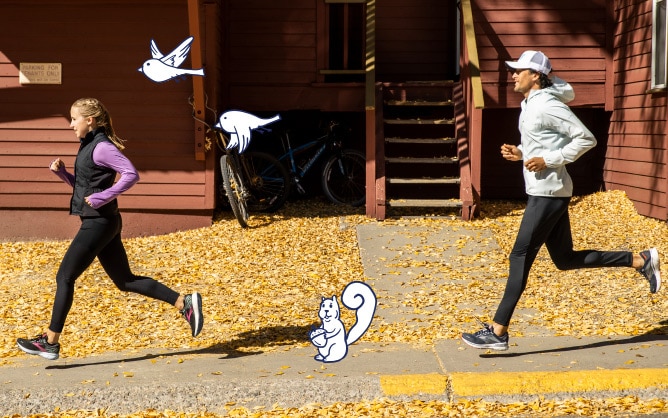
The Ghost 15 is a certified CarbonNeutral® product in accordance with The CarbonNeutral Protocol, the leading global framework for carbon neutrality.
Want to learn more about our work toward zero carbon emissions? Visit our Planet Path to explore more about our programs and efforts.
